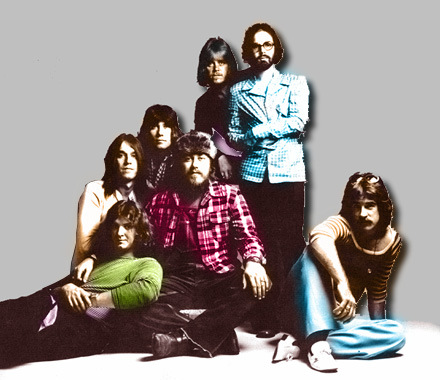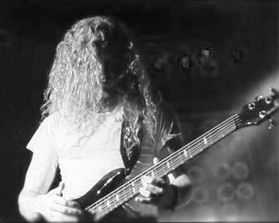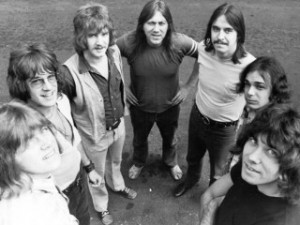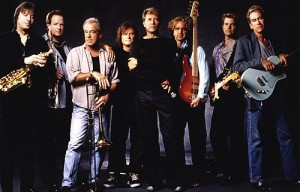Music
Chicago
Rock and Roll With Horns
Dawn Bonner & Michael Holloway
“When I saw you guys out there, I saw three horn players with one set of lungs, and a guitar player who’s better than me!”
~Jimi Hendrix
“If you were fortunate enough (and old enough) to witness the experimental, politically charged sounds of Chicago, it was an unforgettable experience.”
~Shelli Carlisle, The Forum
Inglewood, Calif. 1973
In the Beginning…
Four of the six founding members are still with the eight member band today. And, the new guy, who has only been with the band for 14 years has been accepted by Chicago fans as a vital and integral band member.
February 15, 1967 was an auspicious day for music lovers. It was the day six people gathered in Walt Parazaider’s Chicago apartment and made a gentleman’s agreement to devote their lives to making music together.
These gentlemen were: saxophonist Walter Parazaider, trombonist James Pankow, trumpet player Lee Loughnane, guitarist Terry Kath, keyboardist Robert Lamm, and drummer Danny Seraphine.
They began playing venues around Chicago as The Big Thing. In 1967 The Big Thing was fronting for a band bigger than them at the time, The Exceptions. They had the audacity to steal a member of The Exceptions. That person was bass player, Peter Cetera. The year was 1967.
Shortly thereafter, they changed their name to Chicago Transit Authority. However, a lawsuit by the Chicago Public Transportation Company enticed the band to shorten their name to Chicago. They had only been playing together for two years when they began opening for music icons Janis Joplin and Jimi Hendrix.

Terry Alan Kath
Born January 31, 1946 Chicago, Illinois
Died January 23, 1978 Woodland Hills, Calif.
Musician, Songwriter
guitar, vocals, bass guitar
Band member 1967 – 1978
Terry Kath
The band has added and lost members over the years, through personal conflicts between the members, the yen for solo careers, and even the accidental suicide in 1978 of band co-founder, Terry Kath.
Kath was partying with several people and cleaning part of his large gun collection. Someone expressed fear of him doing this and Kath wanted to assuage their concern.
Kath’s last words to guitar technician, Don Johnson, were “Don’t worry, guys. It isn’t even loaded. See?”
Jimmy Pankow said, “Terry was the living breathing soul of what this band was all about and he still lives with us today. We’d like to think that he’s somewhere up there holding a spot for us in the band.”
The band members still hear Kath’s influence in the music they are writing and playing today. They also say he was an incredible musician, one of the best, ever.
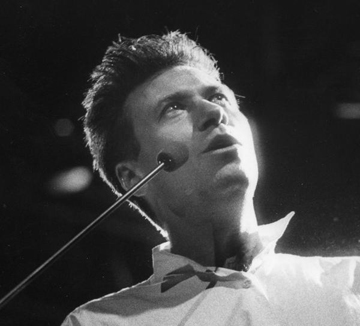
Robert William Lamm
Born October 13, 1944 Brooklyn, New York
Songwriter, Record Producer, Musician
vocals, keyboards, guitar
Band member since 1967
Robert William Lamm
“My early training was really as a member of a church choir when I was a kid. It was a very good choir in Brooklyn, New York. It exposed me to some of the great sacred music from the Middle Ages, right up through Bach and into some of the 20th Century composers.”
~Robert Lamm, A founding member of Chicago
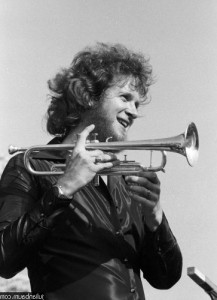
Lee Loughnane
Born October 21, 1946 Elmwood Park, Illinois
Musician
trumpet, flugelhorn, keyboards, vocals, guitar
Band member since 1967
Lee Loughnane
“It has definitely been a blur at times, and along the way you miss out on some of your children’s growth, and it can be hard on your wife.
“Or a few wives, in my case. I’m on my fourth, but it was a matter of taking a while to find the perfect mate, which I now have. Of course, I had to wait for her to get born, too, but she’s not so young that I’ll have to go to court or anything like that.”
~Lee Loughnane, A founding member of Chicago
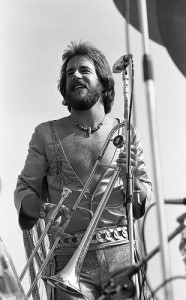
James Carter Pankow
Born August 20, 1947 St. Louis, Missouri
Musician, Songwriter, Arranger trombone, keyboards, vocal, percussion
Band member since 1967
James Carter Pankow
“Oh, man! Yeah, well, Terry Kath was very unhappy. He was not a happy camper, because Jimmy Page and Ten Years After and Eric Clapton, and all these English—The Yardbirds—all these English guitar players—and Hendrix—were getting all this acclaim. And, Terry Kath was a truck driver in Gary Glitter clothes it was, you know, “Who the fuck is this peasant from the United States?”
“He was getting completely blown-off and put down, and he was one of the most incredible guitar players of his time.”
“So we had a press conference in England. And, Terry Kath waited for the whole band to pose with every medium in Europe and Asia on the roof of that Hilton. And, when 400 photographers got ready to shoot the picture, he gave the finger to the whole bunch of them and went, “Fuck you England, you motherfuckin, teabag, faggot, motherfuckers!!” And, that was the last time we worked in the United Kingdom.” [Laughs]
~James Pankow, A founding member of Chicago
Quote from an interview with freelance writer Debbie Kruger
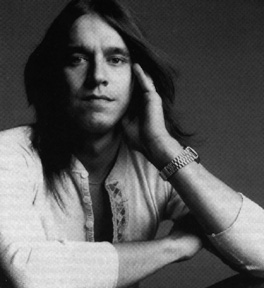
Walter Parazaider
Born March 14, 1945 Chicago, Illinois
Musician
saxophone, clarinet, flute, piccolo
Band member since 1967
Walter Parazaider
“I kept playing it when I discovered that you could make a buck and get some girls playing a saxophone in a rock ‘n roll band.”
“I started playing when I was nine years old because I saw Benny Goodman on The Ed Sullivan Show. I was a clarinetist to start with.”
“I can’t think of a time growing up when there wasn’t music in the house, whether it was my dad practicing by himself or playing in a band that was rehearsing at the house or my mother listening to records.”
“The support that I had from my mother and father over the years was phenomenal.”
~Walter Parazaider, A founding member of Chicago
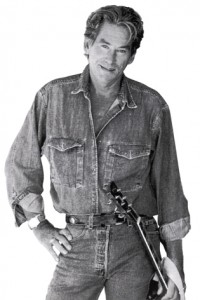
William Bradford Champlin
Born May 21, 1947 Oakland, Calif.
Musician
Vocals, keyboards, guitar
Band member since 1981
Bill Champlin
“I was reluctant at first, about being in the band, especially after hearing I’d be singing Color My World–I never really liked that one much, then I thought why not? I’ll give it a year, 29 years later and I’m still here.”
“You know what they say. If it’s too loud you’re too old.”
“We smoked all of our profits.” (About back in the day.)
“I see all the Hollywood industry bullshit pretty closely. They call everything an act. They call U2 an act. Somebody once told me, “Whether you like it or not, you’re in the some business as Pia Zadora. You know what two words you never hear together? Encore, Pia.”
~Bill Champlin
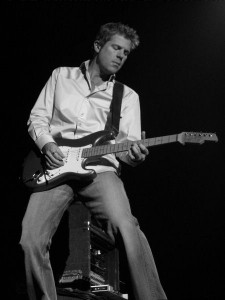
Keith Howland
Born August 14, 1964 Silver Spring, Maryland
Musician
guitar, vocals
Band member since 1995
Keith Howland
“I try not to dwell on the little stuff as much and I try to live in the moment more than I used to.”
“Finally, due to special requests, I have included the pulsing intro music that we have used to open the Chicago shows in recent years.”
“I put this piece together specifically as a crowd getter upper and it wasn’t meant to be listened to as music. Anyway, here is the full length version of the piece for your pulsing pleasure. Enjoy!”
~Keith Howland
Tristan Imboden
“I remember the first time I ever saw them [Chicago]. I had gone to the Shrine Auditorium, I was all of 16.”
“Wow, with horns, the drummer was on fire, the music was just amaaaaziinng, you know. I kept trying to find out who they were. Finally I got someone to tell me who it was. ‘Ahh, it’s CTA, they’re new in town.’ This was one of the first big shows they had done here in LA. I was so floored by them.”
“I am repeating myself, but if someone would have said, ‘Tris one day you are going to be the lead drummer for this band,’ I would have said, yeah and I am Napolean.”
“From the first rehearsal, they encouraged me to install my own style. So much of what Danny did in those first records, those first songs were so integral to who Chicago is. I try to keep a lot of it and add a little of my own slant on it. You never replace a drummer like Danny. You just don’t.”
~Tristan Imboden
Jason Scheff
“Playing the bass was very natural for me, so I knew that it was a gift that my father had given me genetically.”
Will You Still Love Me?, on which he sang lead, did well on the charts. According to Scheff, this was when he felt he finally belonged.
~Jason Scheff
After Kath’s death in 1978, he was replaced with Donnie Dacus. The next year they released, Hot Streets, in 1979. Cetera had already released a self-titled debut solo album and desired a return to this path. He also objected to the band’s extensive touring regime and wanted to spend more time with his family and work on the new album.
In 1985, the band rejected Cetera’s insistence they take a hiatus, so he chose to leave the band and was replaced by Jason Scheff. This line-up continued into the 1990’s. Some say the band’s popularity had begun to wane during the post-Cetera era.
Many others say the band improved musically when Cetera left. The fans who were glad Cetera left, say Chicago’s music got better because Cetera led the band to a more bubble-gum/pop rock sound, thus, leading Chicago away from the jazz rock they had come to love Chicago for. Even some of the band members say Cetera wanted the horns to play as little as possible.
Drummer Danny Seraphine had also fallen out with the band and was replaced with Tris Imboden.
A Long Story
In 1993, Chicago recorded their 22nd album, Stone Of Sisyphus, but the record label was unhappy with the finished product and refused to release it. Originally titled Chicago XXXII (following a long tradition of titling their albums with the band’s name followed by a Roman numeral), the album was shelved for an incredible 15 years and finally released in 2008.
Despite years of speculation, especially through fan sites on the internet, the real reason behind the album’s shelving was unknown for many years.
However, the band did eventually reveal that their management had been negotiating a licensing of their back catalog with the label. When that deal fell through, Warner Records retaliated by scrapping the project.
Chicago has celebrated more than 40 years of non-stop tours, album and CD releases, hits on the charts, and filling the seats of every venue they play because they all respect each others talents and love music.
The eight members of the band have several things in common. They are all incredibly talented. They each truly support one another in writing, composing, singing, and adding their own flavor to the band. It is clear on the albums they release, one time perhaps it will feature mostly one person’s creations and the next time another. And, they are loyal to each other.
There is no one ego, no leader of the band, no one personality who sticks out–while the support players in the background file in and out of the band. The lack of these factors allowed them to become one poignant personality–Chicago. Woo-hoo for us music lovers.
The personality? A great rock band with fabulous musicians, great vocals, bangin’ guitar, and a sterling unique horn section. It also is very clear, they really have fun together on stage.
Lastly, each member of the band is a genuinely nice man, each has a wonderful sense of humor, and each is grateful to get paid to see the world, doing what they love: Playing music and being on stage in front of us fans. They say without the fans, what would the point be of their music?
Thank you Chicago for being so refreshing in the days of BIG EGOS, Big personalities, and boy/girl band formulas where the back-up singers are expendable. As long as you play, we will be with you.
Did you know? One other thing the members of Chicago are passionate about are humanitarian causes. For instance, Nothing But Nets. This charity seeks to educate people about the malaria blight in Africa and to find ways to control this dreadful disease.
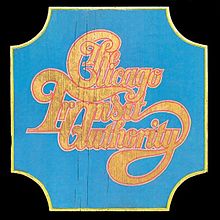 Billboard Magazine Proves Rolling Stone Magazine is Good for the Shitter
Billboard Magazine Proves Rolling Stone Magazine is Good for the Shitter
Billboard Magazine says Chicago is the leading U.S. singles charting group of the 1970s. They have sold over 120 million albums worldwide, scoring 22 Gold, 18 Platinum, and eight Multi-Platinum albums.
Guess Rolling Stone Magazine doesn’t always call it right.
“Yet, for all the bland (and ineffective) calculation, it’s hard to find this band offensive–it doesn’t exhibit enough smarts for that. Because they’re too stupefying to be taken seriously, the only people these guys are likely to fool are themselves.” ~Rolling Stone’s review of ‘Chicago 13’ (1979)
Well, we are a bunch of fools because they still grab us after all these years. And, thank goodness they didn’t take Rolling Stone seriously, look at all of the incredible music we would have missed.
“I read it all the time, mostly when I’m taking a shit.” ~Peter Cetera on Rolling Stone’s bad reviews of every one of Chicago’s records up to 1974.
Cetera left Chicago in 1985 to pursue a solo career, which also proved to be quite successful.


